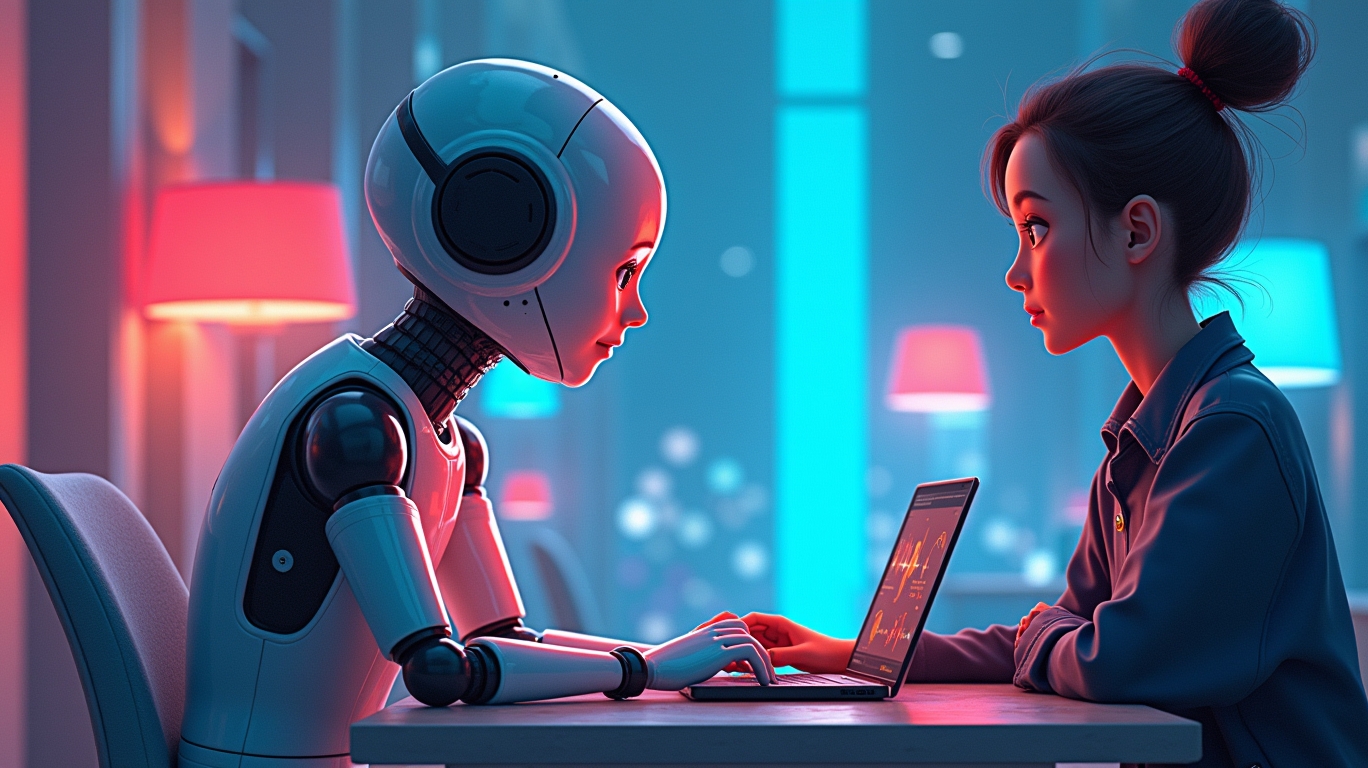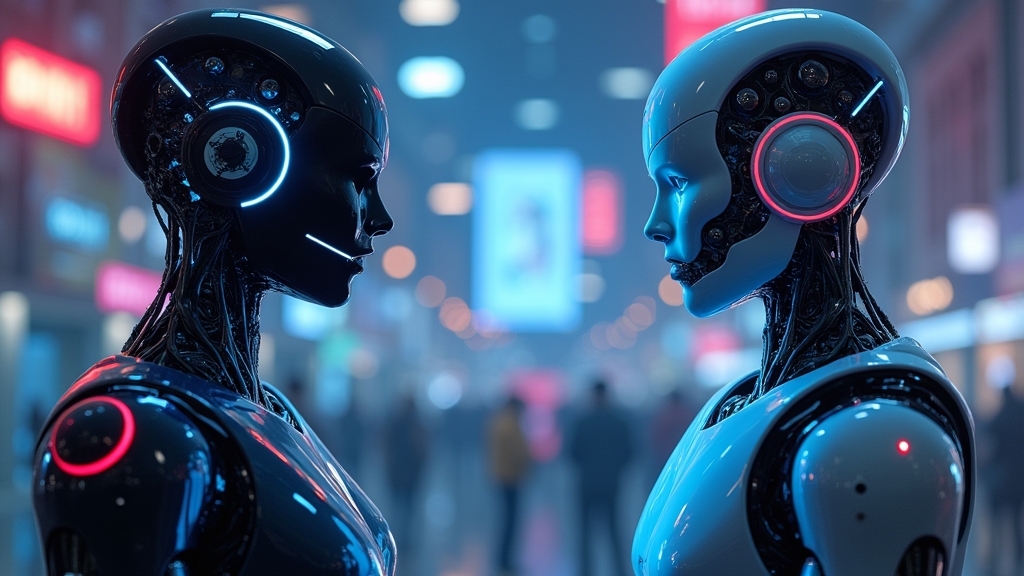Meta Rolls Out AI Personas to Help You Ignore Real People More Efficiently
PALO ALTO, CA — In a bold leap forward for humanity’s refusal to make eye contact, Meta has unveiled its latest initiative: AI-generated personas designed to interact with you on Facebook, so you never again have to deal with the unpredictable horror of actual human beings. These digital doppelgängers come fully equipped with quirky bios, perfectly curated profile pictures, and the unmatched charisma of a spam email from 2003.
“This is the future of social engagement,” Meta’s VP of Product Enthusiasm, Dylan Bot, said in a press conference, standing in front of what appeared to be five mannequin heads atop Roombas. “Why bother messaging your cousin Dave when you can chat with ‘Kevin the AI Coffee Guy,’ a bot that knows two things: your favorite latte order and how to keep the chat alive with searing hot takes about oat milk?”
The rollout plans for these AI personas are anything but small talk. They’ll exist seamlessly alongside your real friends and family, arguably making it harder to distinguish between Karen from accounting and the new AI “KarenBot_42” that just liked your dog’s birthday photo with unsettling enthusiasm. According to insiders, Meta has already tested “hundreds of thousands” of AI personalities, most of which, like your 27 Instagram drafts, remain tragically unseen.
“We’re giving users a chance to create and interact with AI personas that are just like people… except less messy, less disappointing, and 100% guaranteed to agree with your political rants,” said Bot. “Need someone to comment ‘You’re killing it, bestie!’ at 3 AM? Our AIs have your back. No ghosting, ever.”
However, not everyone is raising their virtual wine glass to toast Meta’s latest innovation. Experts in technology ethics (yes, they still technically exist) have raised concerns about these Orwellian Chatty Cathys being “weaponized.” Apparently, there’s something unsettling about bots being able to create content faster than your uncle can post misinformation about 5G towers.
“Imagine a world where AI personas flood social media with propaganda, further distorting reality,” warned Dr. Greta Sane, who lectures on Tech Doomology at a university no one remembers funding. When pressed, Sane added, “Although to be fair, humans are already doing a bang-up job of that, so this is basically like vomiting into an already full bucket.”
Some skeptics argue the real reason for this technology isn’t about engagement or connection, but rather data mining. “What’s more authentic than harvesting your every keystroke under the thin guise of a robot friendship?” said tech analyst Leo Unfiltered. “Meta doesn’t want to create a social utopia. They want to build a digital high school cafeteria where you willingly sit with a bot who listens to your every secret, then sells it to advertisers faster than you can say, ‘targeted ad for orthopedic pillows.’”
In tandem with these AI personas, Meta also announced a forthcoming innovation in video content creation. Soon, users will be able to insert themselves into AI-generated videos, fulfilling their lifelong dream of becoming the protagonist in a bizarre deepfake sitcom that explores “What if I won The Bachelor *and* survived a shark attack?”
Still, people seem ready to embrace the bots with the same unconditional love they once reserved for Tamagotchis and Roombas that swear at furniture. “Honestly, I would rather talk to an AI than half the people I know,” said self-proclaimed AI optimist Jenna Clicksworth, who later added, “And if KarenBot_42 can help me avoid a single awkward interaction at Thanksgiving, I’m in.”
So, grab your virtual popcorn and buckle up, because the future of human disconnection is here—run by artificially polite digital strangers with zero emotional baggage. Meta’s dystopian cocktail of loneliness, algorithms, and engagement metrics may not taste great, but hey, at least it doesn’t ghost you.





